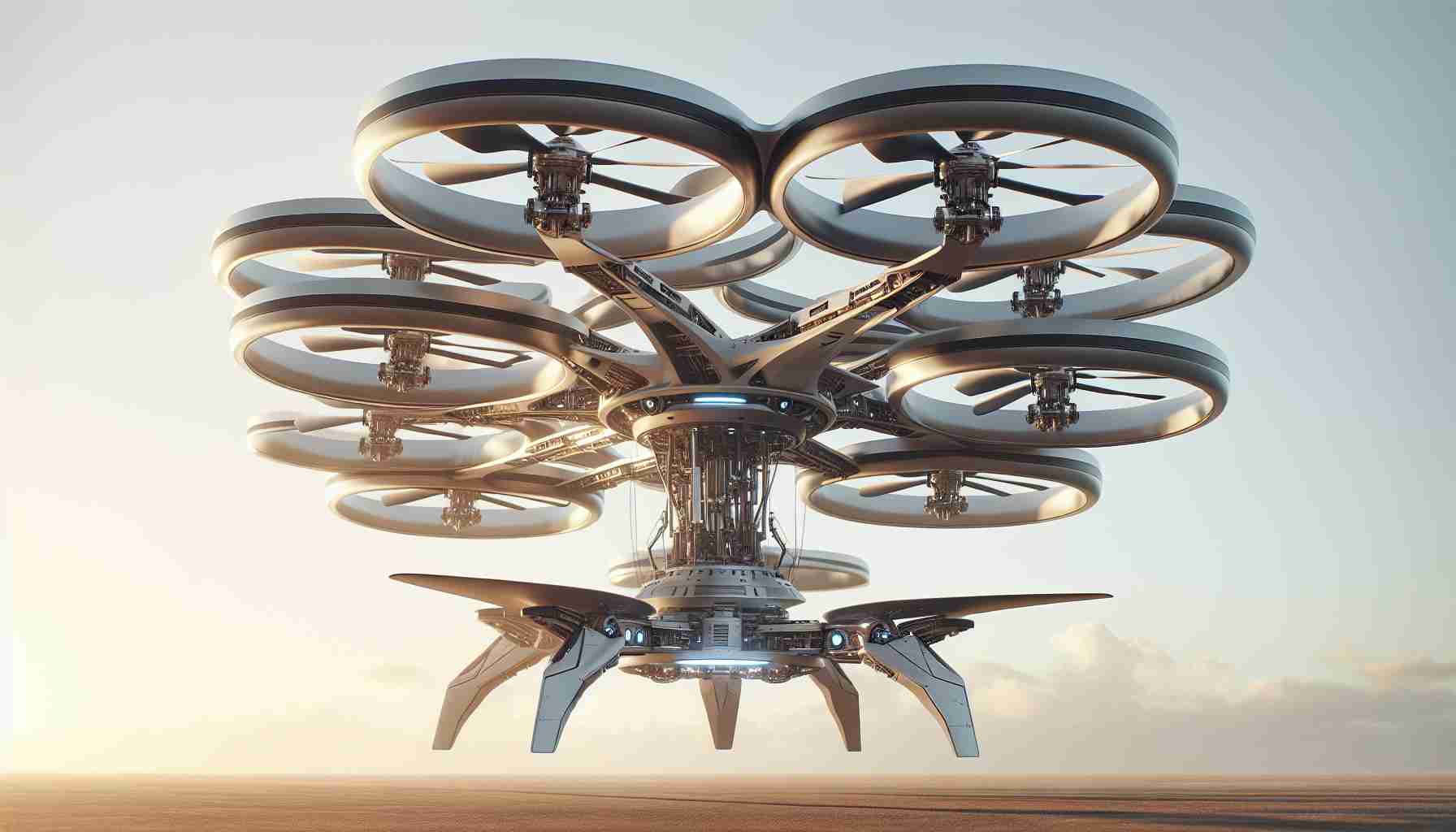A cutting-edge flying car might soon revolutionize air travel with its innovative propulsion system. CycloTech, an Austrian company specializing in flying car components, has introduced the “BlackBird” demonstrator aircraft, which features a unique alternative to conventional propellers.
Engineers have unveiled the CycloRotor, an all-electric propulsion mechanism inspired by the Voith Schneider propeller commonly used on marine vessels like tugboats. Unlike traditional propellers, these circular rotors house small blades that rotate and serve dual purposes, providing both propulsion and maneuverability.
By adjusting the central position around which the blades rotate, and by altering the angle of each blade, the BlackBird can dynamically alter its speed and direction. This capability allows the aircraft to perform sharp turns and make precise adjustments mid-flight, enhancing the comfort and safety of passengers regardless of weather conditions.
The CycloRotor technology sets the BlackBird apart from other electric vertical takeoff and landing (eVTOL) aircraft and prototype air taxis that rely on conventional propellers. The model is still in development, with engineers currently testing smaller scale versions in various promotional releases.
The prototype supports a payload of up to 750 pounds (340 kilograms) and can travel at speeds of 73 mph (118 km/h), which is slightly less than that of a Skyhawk Cessna. CycloTech’s team aims to test a full-sized model by early 2025, pioneering the future of air travel.
The Future of Air Travel: Could CycloTech’s BlackBird Transform Our Skies?
CycloTech’s latest endeavor, the BlackBird flying car, may soon reshape the landscape of air travel with its futuristic technology. But what sets this eVTOL apart isn’t just its sleek design or eco-friendly credentials. At the heart of BlackBird’s innovation lies the CycloRotor — a cutting-edge propulsion system that eschews traditional propeller technology for something that looks and operates unlike anything else currently in the air. This development could have far-reaching implications for the future of transportation technologies.
Unique Evolution of Propulsion Mechanics
Drawing inspiration from the marine world’s Voith Schneider propeller, the CycloRotor is a one-of-a-kind engineering marvel. The circular rotors encompass rotating blades that can be adjusted in real-time to control both propulsion and maneuverability. This offers an unprecedented level of control and stability in flight, which is crucial for navigating urban airspaces with precision. Imagine the agility of a helicopter combined with the sleekness of a cutting-edge drone; that’s the promise of the CycloRotor.
Implications for Human Mobility and Technology
But why stop at flying cars? The technology baked into the BlackBird goes beyond just personal transport. Its capacity to perform sharp turns and precise maneuvers can be transformative for search and rescue operations, medical evacuations, and freight transport in densely populated areas where ground movement is challenging.
Moreover, the all-electric nature of these vehicles aligns with global efforts to reduce reliance on fossil fuels. However, one might wonder about the efficiency of such systems. Would they truly represent a greener option, especially when weighed against the environmental impact of producing batteries and electric motors?
Hope and Skepticism: The Dual Nature of Innovation
The potential of technologies like the CycloRotor is extraordinary, but they also come with their fair share of skepticism. Could such systems scale to meet demand in bustling cities worldwide? Issues like air traffic management, regulatory hurdles, and the need for new infrastructure are unresolved questions waiting in the wings.
Additionally, the speed of the BlackBird—while exciting at 73 mph—poses a question. Are these vehicles fast enough to meet consumers’ expectations for quick travel, especially when compared to existing small aircraft like the Cessna Skyhawk? Would its relatively modest speed dampen its appeal for those seeking rapid urban transport?
The Road Ahead: Challenges and Opportunities
With a prototype already able to carry a decent payload and reach speeds comparable to established light aircraft, CycloTech’s vision is ambitious yet wholly grounded in engineering potential. As tests progress towards a full-size model slated for early 2025, the company will undoubtedly encounter challenges. Public acceptance, regulatory approval, and economic viability are all critical for the BlackBird’s airborne ambition to truly take off.
By considering these factors, CycloTech’s technological strides represent both a promise and an invitation to rethink how humanity moves through the world. It’s a glimpse into a future where air travel becomes personal and ubiquitous, transcending the limitations of current urban mobility.
For more on emerging aeronautical technologies, visit CycloTech.







